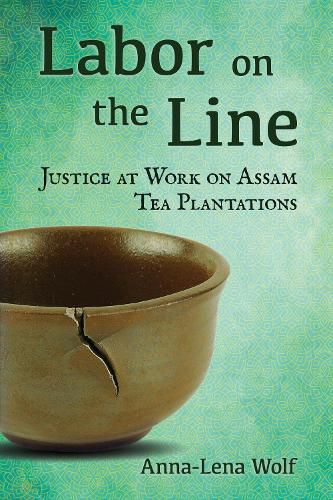Readings Newsletter
Become a Readings Member to make your shopping experience even easier.
Sign in or sign up for free!
You’re not far away from qualifying for FREE standard shipping within Australia
You’ve qualified for FREE standard shipping within Australia
The cart is loading…






Labor on the Line provides insights into the world's largest tea growing region of Assam. Anna-Lena Wolf examines everyday conceptualizations of justice: how they emerge, become prevalent, transform, and are negotiated by differently positioned actors on Assam's tea plantations. Academics and activists have criticized the conditions on these plantations as a form of bondage, arguing that the persistence of a colonial wage structure-characterized by low cash wages supplemented with in-kind benefits-reinforce laborers' dependence on plantations. But Wolf shows that there is more to the story. Tea plantation laborers and trade unionists formed surprising alliances with managers and plantation owners based on everyday conceptions of justice. All involved favored the old-style plantation at a time when fundamental changes were appearing in the political economy of tea production.
Labor on the Line challenges the simplistic notion that dismantling tea plantations would create a better world for tea plantation laborers by advancing notions of justice in innovative ways.
$9.00 standard shipping within Australia
FREE standard shipping within Australia for orders over $100.00
Express & International shipping calculated at checkout
Labor on the Line provides insights into the world's largest tea growing region of Assam. Anna-Lena Wolf examines everyday conceptualizations of justice: how they emerge, become prevalent, transform, and are negotiated by differently positioned actors on Assam's tea plantations. Academics and activists have criticized the conditions on these plantations as a form of bondage, arguing that the persistence of a colonial wage structure-characterized by low cash wages supplemented with in-kind benefits-reinforce laborers' dependence on plantations. But Wolf shows that there is more to the story. Tea plantation laborers and trade unionists formed surprising alliances with managers and plantation owners based on everyday conceptions of justice. All involved favored the old-style plantation at a time when fundamental changes were appearing in the political economy of tea production.
Labor on the Line challenges the simplistic notion that dismantling tea plantations would create a better world for tea plantation laborers by advancing notions of justice in innovative ways.